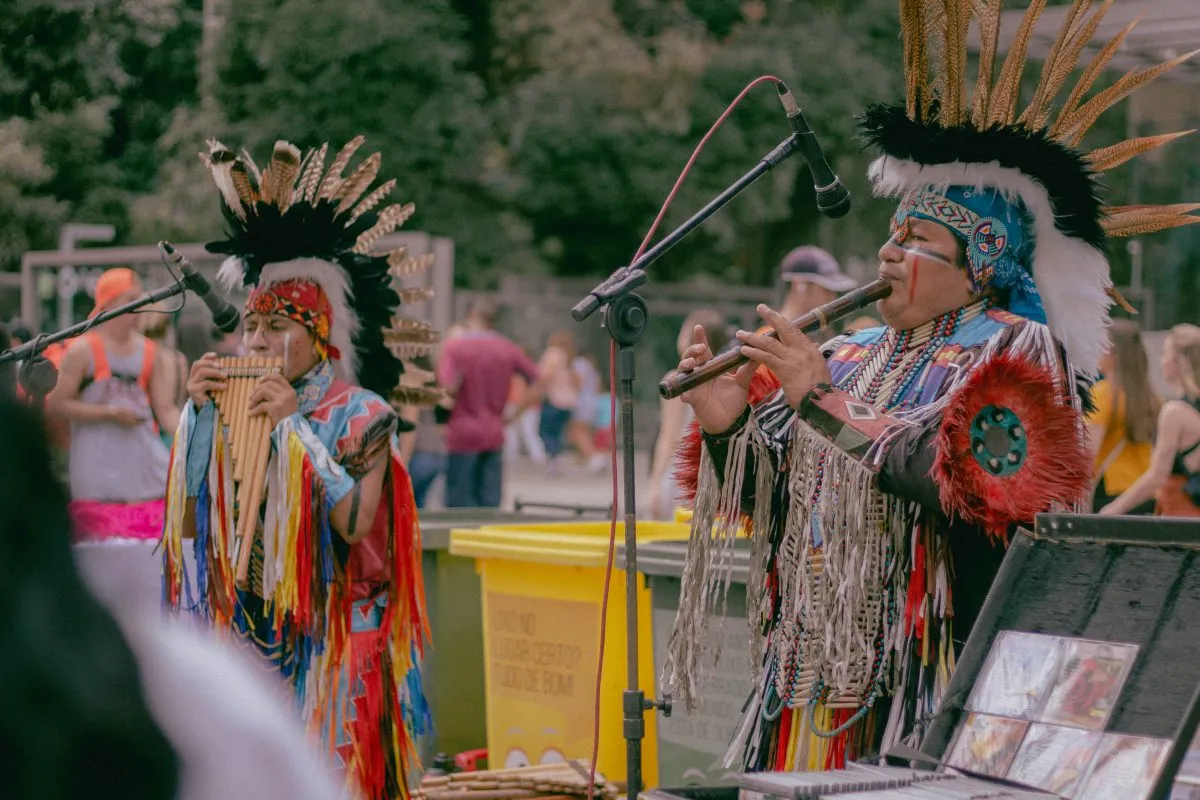The recognition of special days and holidays is an integral part of any nation’s culture. In the United States, numerous holidays commemorate significant events and communities. However, the status of Native American Day remains a subject of curiosity. Is Native American Day A Federal Holiday?
In this article, 49native delve into the official designation of Native American Day, shedding light on its significance and status on the national calendar.
Is Native American Day A Federal Holiday?

Indigenous Peoples’ Day is gaining momentum across the United States, even though it’s not a federal holiday. This article explores the increasing recognition of Native American contributions and the celebration of Indigenous Peoples’ Day in various states and localities. It’s often observed on the second Monday in October, sometimes alongside or in place of Columbus Day.
Also touch on recent developments, like municipalities officially designating it as a holiday and U.S. lawmakers pushing for its recognition as a federal holiday, highlighting the growing significance of this cultural celebration
When is Indigenous Peoples’ Day?

Indigenous Peoples’ Day, a significant American holiday, stands as a tribute to the indigenous communities across the nation. This article delves into the origins and growing recognition of this celebration, highlighting its official status in various cities and states.
It’s observed on the second Monday in October and is often seen as a counter-celebration to Columbus Day, honoring indigenous cultures while reevaluating the historical context of Columbus’s arrival. Also discuss the presidential proclamations marking the importance of Indigenous Peoples’ Day in recent years, emphasizing its cultural significance in America.
What is the significance of indigenous peoples day?
Indigenous Peoples Day, a growingly recognized occasion, carries deep significance for Native Americans and their rich cultural heritage. This article explores the historical context of Columbus Day, which Indigenous Peoples Day often replaces, and how this shift symbolizes a powerful statement of Native resilience.
While some debate the choice of date for this celebration, it remains a vital representation of Indigenous triumph over adversity. Let’s delve into the historical and cultural significance of this important day.

Indigenous Peoples Day is not just another holiday; it is a profound and meaningful observance that resonates deeply with Native Americans and many others who appreciate its significance. At its core, this day represents a powerful shift in perspective and recognition, replacing Columbus Day with a more inclusive and accurate reflection of history.
1. Challenging the Columbus Narrative
For centuries, Christopher Columbus was celebrated as a heroic explorer who “discovered” America. However, for Indigenous peoples, this narrative ignored the fact that their ancestors had inhabited these lands for millennia.
Columbus’s arrival marked the beginning of a painful era characterized by colonization, oppression, and violence against Native communities. Indigenous Peoples Day challenges this flawed narrative, acknowledging the dark side of history.
2. Celebrating Survival and Resilience
Indigenous Peoples Day serves as a celebration of Native American survival and resilience in the face of immense adversity. It’s a day to honor the countless generations who endured hardships, discrimination, and attempts to erase their cultures. By shifting the focus to Indigenous heritage, the day recognizes that these communities continue to thrive, practice their traditions, and contribute to the rich tapestry of American society.

Read more: When Is Native American Day?
3. Promoting Awareness and Education
This observance provides a platform for education and awareness about Indigenous cultures, histories, and contributions. It encourages discussions in schools, communities, and across the nation, fostering a better understanding of the challenges faced by Native Americans and the importance of upholding their rights.
4. A Symbol of Triumph Over Erasure
By celebrating Indigenous Peoples Day in place of Columbus Day, it symbolizes a victory for Native communities. It signifies that despite the attempts to erase their cultures and lands, Indigenous peoples are still here, preserving their traditions, languages, and identities. It serves as a potent reminder of their resilience and determination.
In essence, the significance of Indigenous Peoples Day is rooted in rectifying historical inaccuracies, honoring Native American resilience, promoting awareness, and celebrating their enduring presence. It’s a day that encourages reflection, dialogue, and a commitment to upholding the rights and dignity of Indigenous peoples in the United States and around the world.

